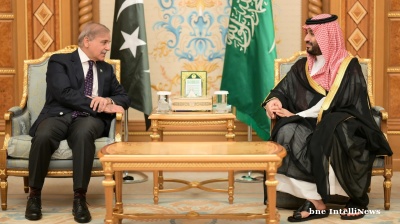Substantial progress in several areas was reported at a meeting of the chief negotiators from Moldova and the separatist republic of Transnistria on February 15.
The progress shows the success of the Moldovan authorities in normalising the situation in Transnistria and indirectly curbing the region’s separatist ambitions.
The separatist region came under fierce economic pressure last year and had to devaluate its currency after Moldova’s authorities decreased electricity imports from Transnistria and took control over all the country’s borders including in the region controlled by Transnistria — both actions with the help of Ukraine, which lies on Transnistria’s eastern border.
At the same time, the separatist leaders failed to get the supplementary financial support they asked for from Russia, partly as Russia preferred its more moderate partner Moldovan President Igor Dodon over the radical separatist leaders in Transnistria. The pro-EU ruling coalition in Chisinau added to the pressure by its rhetoric in favour of the evacuation of Russian troops currently located in the separatist region.
Negotiators Cristina Lesnic and Vitali Ignatiev met in Chisinau on February 15 under the 1+1 format to review progress achieved in the implementation of four out of five agreements signed between the sides in November last year, according to a statement from the Organisation for Security and Cooperation in Europe (OSCE) that mediates the conflict.
The four chapters where progress was marked regard making the Gura Bicului-Bychok bridge over the Dniester river accessible to vehicles of up to 10 tonnes, ensuring the functioning of the Moldova-administered Latin-script schools in Transnistria, the endorsement of educational documents issued in Transdniestria by the Moldovan authorities, and restoring Moldovan farmers’ access to their land in the Dubasari district. As regards the last chapter, Moldovan negotiator Lesnic called on the Transnistrian side to accelerate the process with the view to allowing Moldovan farmers to start sowing their land on Transnistrian territory this spring.
The sides signed a protocol decision on veterinary, quarantine and plant protection measures. An agreement on the normalisation of the situation of cars registered by the separatist region is being negotiated as well.
The sides also agreed on opening two more chapters, on banking and human rights, according to deschide.md.
The agreements reached by the two sides indicate a gradual move toward normalising activity in Transnistria as a part of Moldova while the status of the region remains to be discussed later.
Chisinau continued to take a tough line on symbols of the separatist region. The Moldovan authorities will endorse university diplomas issued by Transnistrian universities, but no symbol of the separatist region should be placed on the diploma. Similarly, under an agreement still in the pipeline, cars registered in Transnistria (which are not recognised by other countries as officially registered) will receive Moldovan plates, but again no symbols of the separatist region should be placed on the plates.
Transnistria, a thin sliver of land between the Dniester river and the Ukrainian border, has been de facto independent from Moldova since the early 1990s. It was backed by Russia in the brief war between Chisinau’s forces and the separatists, and ever since its economy has been shored up by handouts from Moscow.
News

Trump mistakes Armenia for Albania for the third time at UK press conference
US president says he brought peace to “Aberbaijan” and Albania as he touts his peacemaker credentials during UK state visit.

Iran conducts evening ballistic missile test at Semnan facility
Iran conducts evening ballistic missile test at Semnan range with Sejjil-class system, residents report dramatic launch amid heightened security around military facility.

Pakistan gives Saudi Arabia a landmark Article 5 collective security guarantee
In what is likely to be a game-changing decision, Pakistan, a nuclear power, has given Saudi Arabia an Article 5-like collective security guarantee.
_1758207765.jpg)
Latin America's development gains under threat as one in four live in poverty, UN report finds
UNDP warns of stagnation and rising vulnerability across the region amid "overlapping crises".




